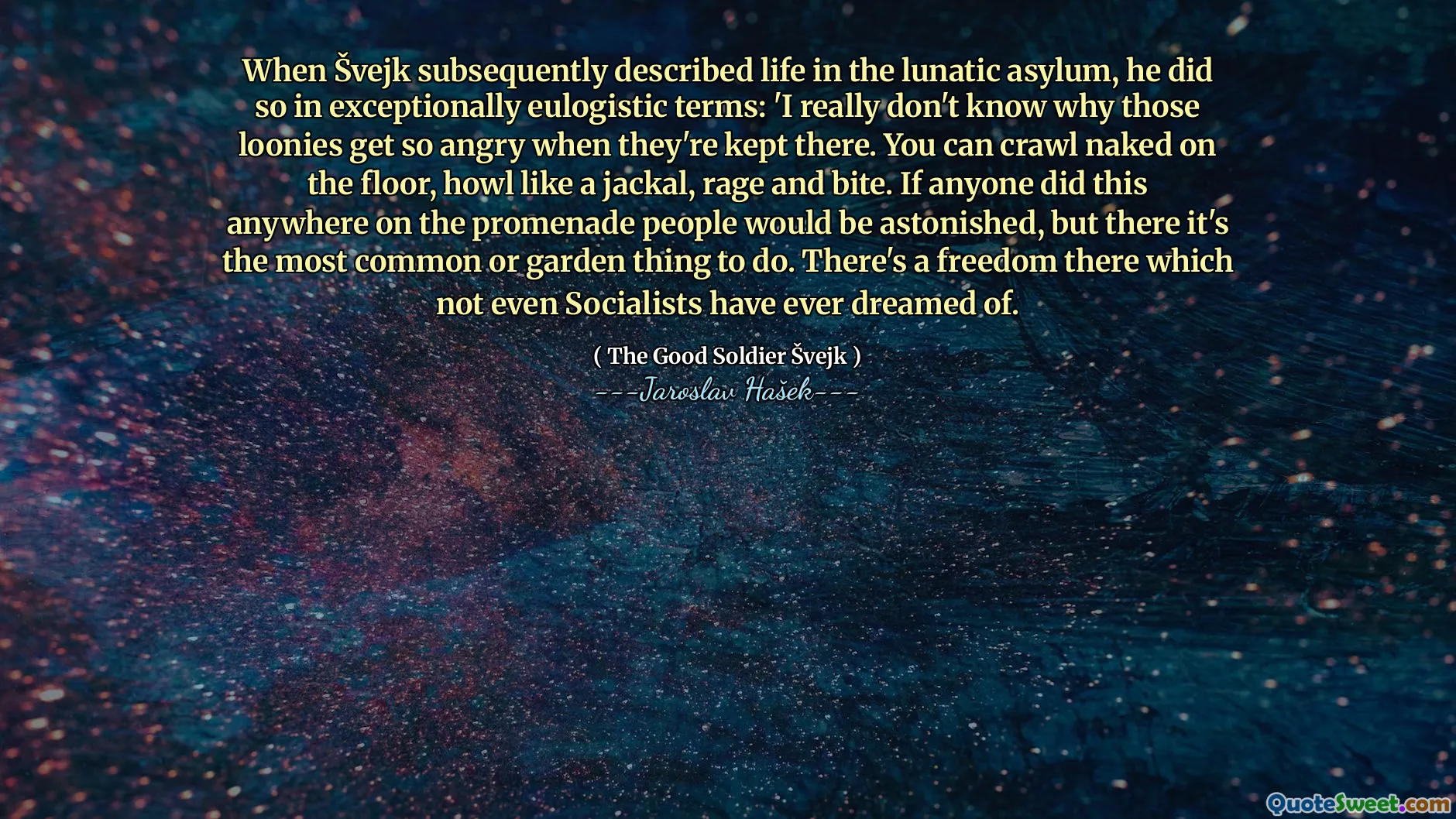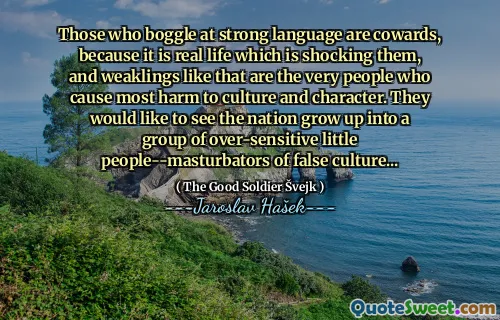
When Švejk subsequently described life in the lunatic asylum, he did so in exceptionally eulogistic terms: 'I really don't know why those loonies get so angry when they're kept there. You can crawl naked on the floor, howl like a jackal, rage and bite. If anyone did this anywhere on the promenade people would be astonished, but there it's the most common or garden thing to do. There's a freedom there which not even Socialists have ever dreamed of.
In Jaroslav Hašek's "The Good Soldier Švejk," the character Švejk reflects on life in a lunatic asylum with a surprising sense of appreciation. He notes the freedom afforded to the inmates, where unconventional behaviors such as crawling, howling, or raging are accepted. This observation highlights the contrast between the liberating atmosphere of the asylum and the restrictive norms of society, suggesting that true freedom lies in the absence of societal judgment.
Švejk's comments on the asylum reveal a deeper commentary on the nature of madness and societal expectations. While people outside the asylum may be shocked by such behavior, within the institution, it is commonplace and even liberating. His eulogistic description implies that there is a certain beauty in being unrestrained by societal norms, hinting at the absurdity of social conventions and the limits they impose on individual expression.











